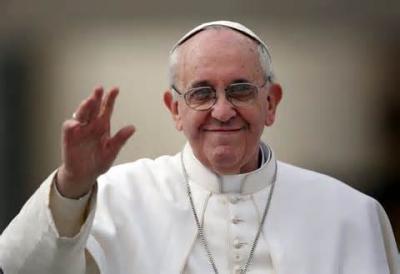Brazil prepares for landmark Pope visit

ROME – Brazil is bracing itself to host the Pope’s first international trip since he was made pontiff in what has been described as the "biggest police operation" in Rio de Janeiro's history.
Francis will arrive in Brazil on Monday and remain in the country for one week, participating in the Church’s World Youth Day Celebration which two million people are expected to attend.
A meeting has been planned between the pontiff and the Brazilian president Dilma Rousseff, a former Marxist guerrilla who has supported the legalisation of abortion in the past. Francis will then visit a Marian shrine between Rio de Janeiro and Sao Paulo.
The following day, he is expected to address crowds of young people celebrating the World Youth Day, a major Catholic festival started in 1983 by Pope John Paul II.
On July 25 Francis will visit one of Rio’s most notorious favelas, Manguinhos, currently home to an estimated 35,000 people. Until last year the shantytown was under the rule of drugs gangs.
According to a Vatican spokeman, Francis will meet families living in the slums and walk openly through its alleyways.
The visit will end with a prayer vigil on July 27 and an outdoor mass to be held in Guaratiba, 25 miles west of Rio, where a purpose-built grandstand is being completed to accommodate the crowds.
Brazil’s Defence Ministry has said that it will deploy over ten thousand navy, army and air force personnel to secure the event. These numbers were increased by some two thousand following the June protests, which involved over one million people.
Presidential Chief of Staff Gilberto Carvalho has expressed his confidence that the Pope’s visit will not be marred by similar unrest, “given the very nature of the event.”
Nonetheless, according to local press reports, a mass “beijaco” – involving gay couples kissing each other – will be held to protest the Catholic Church’s unyielding position on homosexuality.
The pontiff’s decision to visit Brazil has been widely lauded as proof of his continued commitment to supporting faith in Latin America, home to 40 percent of the world’s Catholics.


